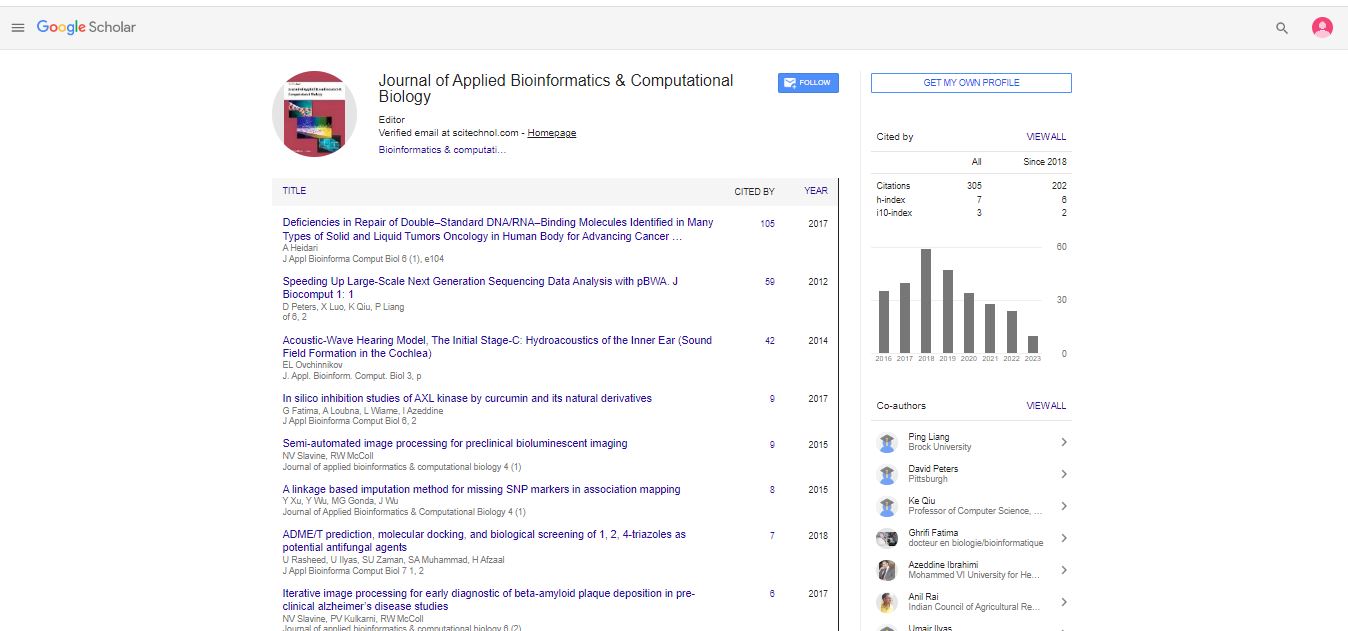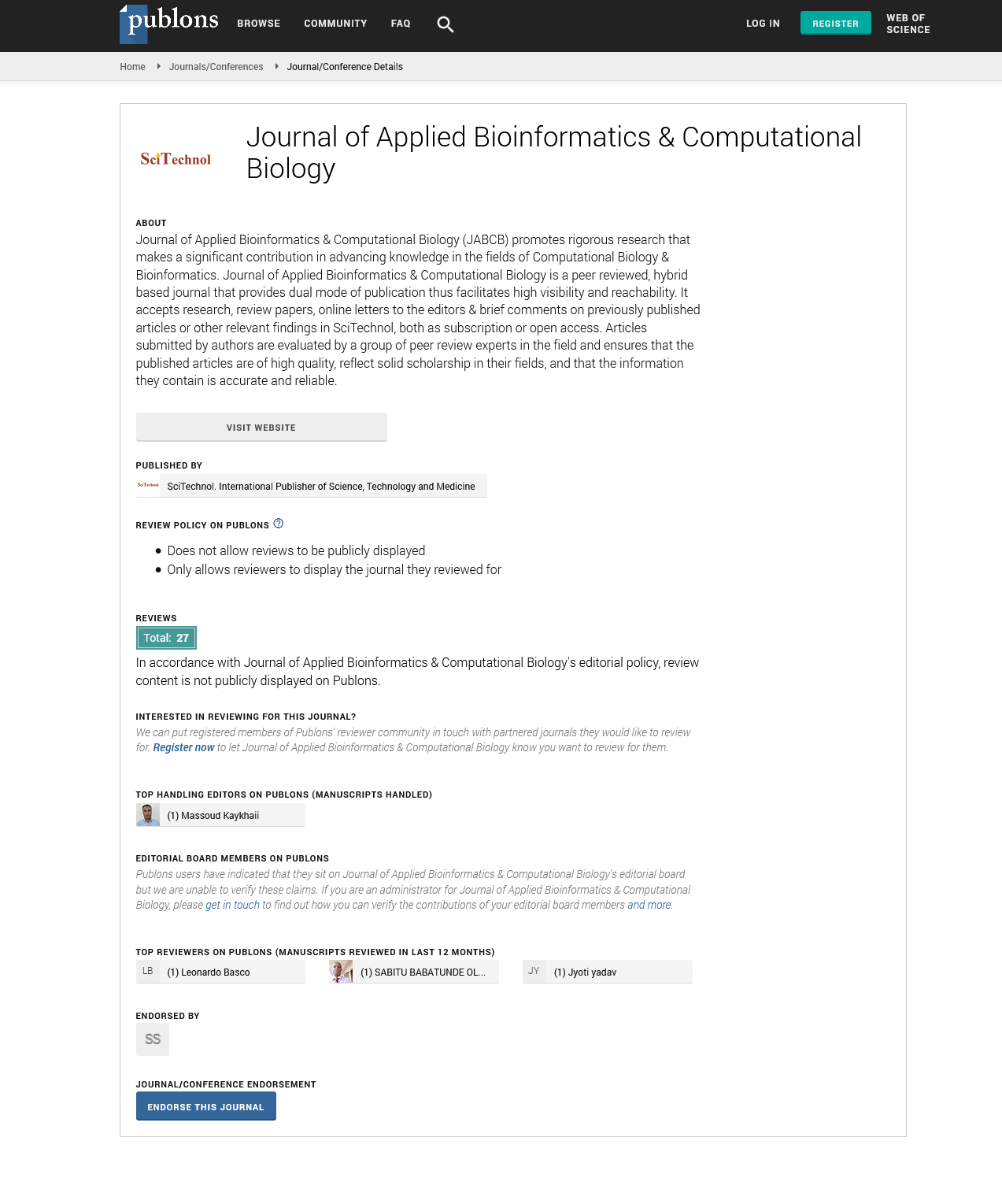The strategy of inducing in dromedary specific immune response against a potassium channel subtype and engineering of active antibodies
Balkiss Bouhaouala-Zahar, Rahma Ben Abderrazek, Alain Labro and Rym Hassiki
Institut Pasteur Tunis, Tunisia
: J Appl Bioinforma Comput Biol
Abstract
Statement of the art: Voltage-gated potassium (Kv) channels form cells repolarizing power and are commonly expressed in excitable and non-excitable cells. Due to their involvement in the dysfunction of several physiological processes, these channels are promising therapeutic targets. Immunoglobulins or antibody molecules are increasingly being developed for the treatment of a variety of diseases including channelopathies. To develop antibody-based modulators of membrane proteins, we questioned whether immunizing dromedary with cells that express the mouse Kv2.1 channel protein is sufficient to induce an immune response and most importantly yields a serum with antibodies that recognize and target the Kv2.1 channel. Methodology: To this end, we immunized a dromedary with heterologous Ltk-cells that overexpress the mouse Kv2.1 channel. The advantage of this approach is that the channel is presented in its native tetrameric configuration. Using a Cell-ELISA, we checked the ability of the immune serum to detect intact Kv2.1 channels on the surface of cells. Then, using a Patch Clamp electrophysiology assay we explored the capability of the dromedary serum in modulating Kv2.1 currents. Findings: Cells that were incubated with serum (Day 51) displayed a statistically significant 2-fold reduction in current density compared to control conditions as well as cells incubated with serum from Day 0. Interestingly, the antibodies were most likely directed against the extracellular regions of Kv2.1. Moreover, recording Kv2.1 currents in whole cell voltage-clamp modus of the patch-clamp technique demonstrated the ability of components within Day 51 serum to decrease the potassium flux. Conclusion: This is the first successful generation of an anti-Kv2.1 immune serum in dromedary containing antibodies that selectively target expressed Kv2.1 channels with an inhibiting effect on the current density by binding to extracellular epitopes of the channel. The study is undertaken to develop various specific binders for further rational design and pre-clinical study.
Biography
E-mail: balkiss.bouhaouala@pasteur.tn
 Spanish
Spanish  Chinese
Chinese  Russian
Russian  German
German  French
French  Japanese
Japanese  Portuguese
Portuguese  Hindi
Hindi 
